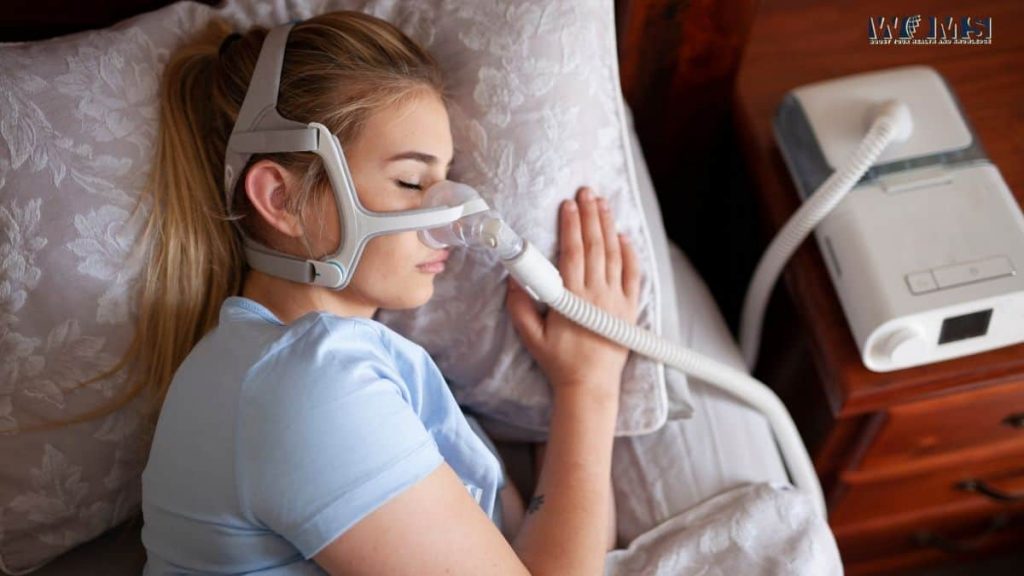Sleep Apnea: 6 Signs And Treatment Options

Sleep is a naturally recurring state of mind and body, characterized by altered consciousness, relatively inhibited sensory activity, inhibition of nearly all voluntary muscles, and reduced metabolic rate. It is distinguished from wakefulness by a decreased ability to react to stimuli, as well as a decreased ability to generate internal stimuli.
The importance of sleep is often underestimated. Sleep is crucial for our physical and mental health. It helps us to recharge and restores our energy levels. Poor sleep can have a negative impact on our mood, performance, and overall health.
Sleep disorders
As much as you want to get the most out of your sleep, it’s difficult to sleep well when you have sleep apnea. Sleep apnea is a type of sleep disorder wherein a person’s breathing stops and starts during their sleep.
When this condition’s left untreated, it can bring a series of health problems like hypertension, stroke, heart attack, heart failure, diabetes, and cardiomyopathy.
Furthermore, since sleep apnea can result in poor sleep quality, the person may experience extreme tiredness and sleepiness during the day. This could affect their day-to-day performance or, worse, cause vehicle accidents due to lack of focus.
It can affect anyone, including babies, children, and specifically, overweight people over 50 years old. You may also notice similar physical traits in people with sleep apnea, such as a larger neck, heavier weight, and enlarged tonsils.
However, these physical traits aren’t always enough to convey if a person has sleep apnea. In fact, even the person himself can’t tell he has sleep apnea, considering that its symptoms only happen during sleep.
What Are The Signs of Sleep Apnea?
If you constantly feel sleepy and lethargic during the day and suspect that you have sleep apnea, knowing the warning signs may help you get the treatment you need and consult the best sleep apnea doctor in Houston or anywhere near your area. For your guide, here are five signs of sleep apnea or sleep apnea symptoms.
Loud Snoring, Gasping, And Snorting
One of the familiar signs of sleep apnea is being a noisy sleeper. Whether it’s snoring, gasping, or snorting, these loud noises signify that your upper airways are obstructed, hence, causing the noise. These noises can often be too loud and cause a disturbance to your roommates.
They may also hear that your snores or gasps have breathing pauses. Thus, if you hear your partner or roommate complain about your loud noises during your sleep, take this as a sign that you might have it.
On the other hand, keep in mind that not all noisy sleepers have sleep apnea, as some people only snore on rare occasions. However, if your roommate says your sleeping noises are louder and more consistent, it may be best to consult a sleep apnea doctor for proper diagnosis and treatment.
Restlessness During Sleep
Due to frequent pauses with your breathing every night, you may struggle to breathe, tend to wake up several times during your sleep, and become more restless. If you find yourself jerking, kicking, tossing, and turning around in your bed, then sleep apnea could be the reason behind it.
If you don’t have a roommate who can report to you about your restlessness during your sleep, you may try recording yourself and see how restless you can be. Once you’ve confirmed your frequent restlessness while sleeping, consider talking to your doctor for consultation.
Excessive Tiredness And Daytime Sleepiness
If you still feel tired, sleepy, and unenergetic despite a good night of sleep, you may have sleep apnea. Your frequently disrupted breathing results in poor sleep quality and may cause excessive tiredness and sleepiness during the day.
In some cases, you might nod off while doing your tasks, affecting your productivity. You’ll also feel irritable and might catch illnesses quickly since poor sleep quality can take a toll on your immune system. Overall, sleep apnea can affect your mood and energy during the day.
Dry Mouth
Sleep apnea will also cause you to breathe through your mouth known as mouth breathing. Mouth breathing also occurs when you gasp or snore loudly.
Overall, mouth breathing can wake you up, make you feel thirsty, get a sore throat, or have a dry mouth.
Morning Headaches Or Dizziness
Aside from disrupting the quality of your sleep, sleep apnea deprives your brain of enough flow of oxygen due to involuntary breathing pauses.
And so, you may wake up with consistent morning headaches or dizziness due to poor sleep and low oxygen levels in the brain. If you constantly suffer from morning headaches, it may be best to see a doctor.
Night Sweating
When you have sleep apnea, your throat or chest muscles tend to relax and cause obstruction in your airways. This obstruction will prevent necessary airflow, increase your blood pressure, and result in excessive sweating.
Thus, if you constantly experience night sweating despite the comfortable temperatures in your bedroom, consult your doctor.
Although some of these warning signs may also be caused by other factors or illnesses, your best move is to see a doctor for proper consultation. They can conduct a sleep study to observe your breathing patterns and determine whether or not these symptoms signify you have sleep apnea.
At Home Sleep Apnea Tests
At-home sleep apnea tests are simple, non-invasive tests that can help you determine if you have sleep apnea. The latest technology used for at-home testing looks like a watch. This device is worn on the wrist and has a ring loop around the index finger, providing information on vitals.
This device is great because it doesn’t require a GP referral and the results can be obtained after a single night, in the convenience of your own home.
What Are The Treatments For Sleep Apnea?
If your doctor has affirmed you have it, they can provide you with the treatment of sleep apnea based on the severity of your condition. For people with mild sleep apnea, your doctor may only recommend you improve your lifestyle and make better and healthier choices such as quitting smoking, eating a healthy diet, and exercising to lose weight.

Meanwhile, if these lifestyle changes don’t ease your sleep apnea or if you have a moderate to severe case, one or more of these treatment options may be for you:
Continuous Positive Airway Pressure (CPAP) or Bilevel Positive Airway Pressure (BPAP)
Most healthcare professionals recommend the use of CPAP for its treatment. This machine functions by blowing enough air pressure into your airways using a tube and a mask to keep your airway open, thus preventing snoring, and stopping apnea.
If the CPAP machine doesn’t suit you, you can try the BPAP machine. This device is suitable for people who can’t exhale into the high-pressure air from the CPAP.
Oral Appliances
While the CPAP and BPAP devices are more effective in stopping sleep apnea, you may also opt to wear oral appliances.
These mouthpieces are designed to keep your throat open, bring your jaw forward, or hold your tongue in place. Oral appliances are often customized to fit your jaw and dental structure.
Adaptive Servo Ventilation Machine (ASV)
The ASV machine can adapt and adjust its airflow based on your breathing pattern. This device will help normalize your breathing pattern and prevent any breathing pauses by applying pressure during your sleep. Many doctors recommend this device to people with severe cases.
Sleep Apnea Implants
Sleep apnea implant devices are one of the latest innovations for sleep apnea treatment. It’s implanted beneath your skin around your upper right chest to stimulate your tongue muscles and keep airways open to promote normal breathing patterns during sleep.
Using a remote control, you can control this implant device when you need to turn it on/off, increase/decrease the stimulation, or pause the simulation.
Surgery
If any of these treatment options don’t work, the last resort for your doctor is to let you undergo surgery. Sleep apnea surgeries may include jaw repositioning, tracheostomy, tissue shrinkage, and tissue removal.
Takeaway Message
Sleep apnea is a kind of sleep disorder everyone shouldn’t overlook. Otherwise, not only will it affect your sleep quality, but it could also cause severe health conditions and deteriorate your overall health.
Knowing the signs, symptoms, and their corresponding treatment options will help you assess if you or someone you know has it In any case, get a doctor’s help as soon as possible.




